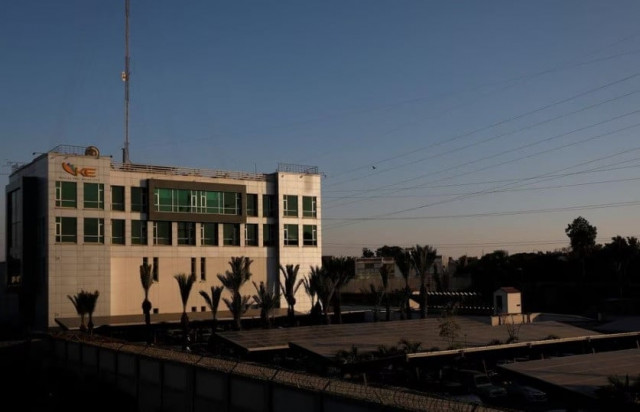K-Electric solar projects achieve record low bids
Receives eight bids for 50 MW Winder project, seven bids for 100 MW Bela project despite challenges in attracting bid

K-Electric (KE) is advancing its renewable energy ambitions with its 150 MW Winder and Bela solar projects, attracting record low bids in a competitive process. During a public hearing organised by the National Electric Power Regulatory Authority (Nepra) on Wednesday, the utility received praise for integrating sustainable energy into its power generation mix.
Nepra Member (Technical) noted that KE is not only offtaking power from national grid but is also harnessing renewable energy for sustainability which represents a commendable and forward-thinking initiative.
Shahab Qader, KE's Chief Strategy Officer, highlighted the significance of receiving eight bids for the 50 MW Winder project and seven bids for the 100 MW Bela project, despite Pakistan's broader challenges in attracting bids for renewable energy projects. This development places the country on the global map for competitive bidding in renewables.
The lowest bid for the Winder project was Rs11.65 per unit, while the Bela project recorded a bid of Rs11.20 per unit. Both lowest bids were submitted by Master Textile Mills Ltd.
The Winder and Bela solar projects are part of KE's larger plan to integrate 1,300 MW of renewable energy into its power generation portfolio. These two projects contribute to a cumulative 640 MW capacity targeted under the initial phase.
Nepra's public hearing focused on five key issues regarding KE's Bidding Evaluation Report (BER): whether KE's bidding process adhered to the NEPRA Competitive Bidding Tariff Regulations 2017 (NCBTR), whether KE complied with Nepra's directives in the approved Request for Proposal (RFP) concerning prudence checks and displacement of expensive energy units, whether the lowest bid tariffs reflect prevailing market conditions, whether delays in the bidding process were justified, and whether measures are in place to ensure the technical qualification of successful bidders in case of equipment or supplier changes.
KE assured Nepra that all regulations under the NCBTR were followed. Addressing the one-month extension in the bidding process, Qader explained that the delay aimed to increase competition by accommodating external challenges. These included restrictions on Chinese companies working in Balochistan, which required bidders to explore alternative engineering, procurement, and construction (EPC) contracts. Additionally, financiers needed more time to evaluate the projects before making investment decisions.
Responding to a question from Karachi industrialist Rehan Javed about the net benefit for Karachi's consumers, Qader stated that the solar projects are expected to save approximately Rs2.5 billion annually. The projects will replace more expensive energy sources, resulting in substantial cost reductions.
Qader also addressed a suggestion that KE explore rooftop solar solutions. He noted that while Distribution Companies (DISCOs) currently buy units from net-metering consumers at Rs27 per unit, these solar projects will generate electricity at nearly Rs11 per unit, significantly lowering net-metering rates.
Nepra has reserved its judgment on KE's renewable energy proposals and will issue a decision following further scrutiny of the bidding and evaluation process.



















COMMENTS
Comments are moderated and generally will be posted if they are on-topic and not abusive.
For more information, please see our Comments FAQ